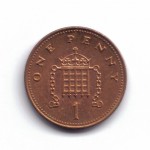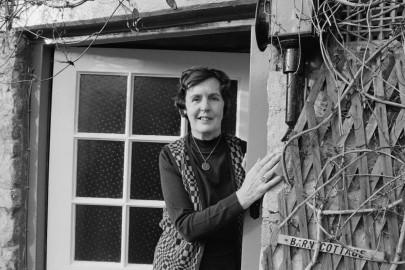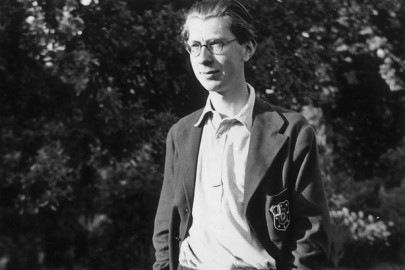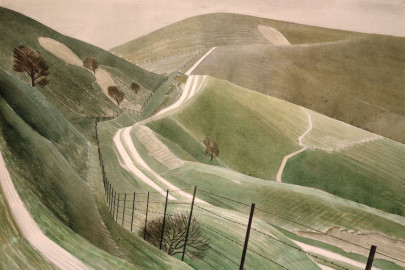 Rosie Bell was born in New Zealand and after doing her degree moved to Edinburgh. She writes songs and poems, as well as blog posts for her eponymous blog. She contributes to Harry’s Place and Shiraz Socialist. We’re delighted to welcome her to The Dabbler. Today she has not one but two books to recommend – a whopping 2p’s worth in total.
Rosie Bell was born in New Zealand and after doing her degree moved to Edinburgh. She writes songs and poems, as well as blog posts for her eponymous blog. She contributes to Harry’s Place and Shiraz Socialist. We’re delighted to welcome her to The Dabbler. Today she has not one but two books to recommend – a whopping 2p’s worth in total.
I recently read The Secret Lives of Somerset Maugham by Selina Hastings, an excellent biography nicely balancing the life and the work. Maugham’s most obviously autobiographical novels are Of Human Bondage and Cakes and Ale (his finest novel) both currently available for 1p on Amazon. Maugham was one of the most popular writers of his age and became very rich, living in a villa in the South of France. I wonder if it was him Larkin had in mind in The Life with a Hole in It:-
So the shit in the shuttered chateau
Who does his five hundred words
Then parts out the rest of the day
Between bathing and booze and birds
Is as far off as ever,
It was boys rather than birds for Maugham, who described himself as “three-quarters queer” to “one quarter normal” , which for a man born in 1875 meant disgrace and prison in Britain if he was ever found out.
Maugham was a spy in the First World War and a propagandist in the Second. A surprising number of English writers of the last century were spies – Graham Greene, John Le Carre, Malcolm Muggeridge, Ian Fleming. (Is Martin Amis debriefing agents in Uruguay and J K Rowling setting honey-traps in China?) In 1917 he was an agent in Russia attempting to influence the Kerensky government to stay in the war on the Allied side. In his Writer‘s Notebook he observed the following:-
With the revolution came a movement to abolish tips. Waiters in restaurants, servants in hotels, claimed instead a percentage of their bills. They looked upon tips as an insult to their manhood. People out of habit continued to offer them, but they were invariably refused. I had an experience which I found peculiar. I had given the boots in my hotel unusual trouble over something or other and so offered him five roubles. He refused it, and though I pressed it on him he would have none of it. Now, with a waiter in a restaurant who might be seen by his fellows, this would not have been astonishing, but here we were by ourselves in my room and no one could have known that the boots – member of a race born with an itching palm – had accepted a gratuity. There was no denying it, there was a change of heart; in some dim way these people, crushed by centuries of brutal oppression, had found a new sense of human dignity. It is foolish to abuse them because they have subjected themselves to the influence of demagogues; they see in these gestures of theirs the promise of a new life. I asked the waiter who generally served me whether the change was to his advantage or not. “No,” he said, “we all made more money when we took tips.” “Would you like to go back to the old days then?” “No,” he smile. “It‘s better as it is.” The spirit is worthy of praise. Unfortunately the common experience is that all these people have grown very uncivil. Service is rendered badly and ungraciously. It is a hard conclusion that man is naturally a boorish fellow who resents services to his like and will be amiable only if he is going to be paid for it.
That English is a little formal for today‘s taste and the style is flat but the anecdote itself is interesting, and that is Maugham’s great strength, that of being the teller of tales and the clued-up gossip. Writers have been influenced by Maugham for his plain speaking and telling a story “without frills” as Orwell said of him. The literary critics of his time eg Edmund Wilson despised him, but he has admirers like Gore Vidal. There’s still some life in his works. The Painted Veil was turned into a watchable film quite recently.
His two autobiographical novels, Of Human Bondage (1915) and Cakes and Ale (1930) are very different from each other. Of Human Bondage is a bit of a misery memoir. The sense of loneliness, the unrequited love, the loss of faith and the search for a meaning to life are still raw. It is a book full of pain. Maugham says in The Summing Up that it was written as therapy.
The narrator of Cakes and Ale grows up in the same fishing town (Whitstable in Kent) as the protagonist in Of Human Bondage, but the novel’s mood is warm and mellow. Maugham’s short stories often have as a narrator Willie Ashenden, the man of the world who listens, observes and then passes on the tale, with a shrug of his shoulders at the foolish antics of human beings. In Cakes and Ale it is the same Willlie Ashenden narrating but he is a participant in the tale as well as the teller of it. He is in his fifties viewing himself as a youth, “faultlessly dressed” in his “white flannel trousers. . . and a black-and-white straw hat with a very wide brim,” and his class prejudices and romantic folly have gained period charm to the older self.
Cakes and Ale is told in a series of flashbacks. Willie Ashenden is being wooed by a prospective biographer, Alroy Kear, to talk about his memories of the greatest novelist of the age, Edward Driffield, who Ashenden knew as a boy. Alroy Kear, the literary operator, is cruelly summed up:-
His career might well have served as a model for any young man entering upon the world of literature. I could think of no one among my contemporaries who had achieved so considerable a position on so little talent. This, like the wise man’s daily does of Bemax, might have gone into a heaped up tablespoon.
So Ashenden recalls his boyhood in the 1880s, when he was teaching himself to ride one of those new safety bicycles, which were replacing the “Ordinaries” or “penny farthings” that only the athletic and physically courageous could manage. Rosie Driffield, also a beginner, in her full skirt, starched blouse and straw hat, crashes into him, and her husband, Edward Driffield, then teaches them both, holding on to Ashenden’s cycle while he starts pedalling and learns to stay on. “It was very hard under such circumstances to preserve the standoffishness befitting the vicar’s nephew with the son of Miss Wolfe’s bailiff.” Driffield is a struggling writer, Rosie an ex-barmaid and it takes some pressure on Ashenden’s guardians before they allow the young gentleman to hob-nob with them but they then have happy times cycling round Kent and spending cosy evenings playing cards. Then one night the Driffields skip the town, leaving a load of debts unpaid.
The novel switches to London where Ashenden, now a young man, meets Rosie again and picks up his friendship with her and Edward Driffield, who is now gaining reputation as a writer. He has been taken up by literary hostesses, and there is some satire at their expense. Rosie and Ashenden go to musical halls and eat fish and chips together, and, he, the shy student, and she, lovely and easy-going, enjoy an affair that he looks back at fondly even when he finds out that he’s only one among a cluster of her lovers. The crash comes when she runs off with her first great love to America. Edward Driffield divorces her and continues to rise in his career until he becomes the Grand Old Man of English letters. He also marries a capable woman who spends her widowhood tending his shrine after his death. It is she who commissions Alroy Kear to produce a cleaned up biography, urging him to write Rosie out of it as much as he can.
Gore Vidal calls Cakes and Ale a “small, perfect novel” and except for a few passages of facetiousness Maugham does not waste a word. The structure is masterly. Its full title is Cakes and Ale or The Skeleton in the Cupboard and the novel gets its momentum by the gradual revealing of that skeleton, through scene after compressed scene, culminating when Ashenden visits Rosie now living in a garish apartment in Yonkers:-
Rosie was at least seventy. She was wearing a very smart sleeveless frock of green chiffon, heavily diamante, cut square at the neck and very short; it fitted like a bursting glove. By her shape I gathered that she wore rubber corsets. . She was stout, and she had a double chin; . . But she looked well and healthy and full of beans.”
Rosie is stunning, still flirtatious, eating an elaborate tea and saying “A little of what you fancy does you good.” Then she, always so placid, speaks about the two great passions of her life – the man she ran off with, and her and Driffield’s child who died. Driffield had used the child’s death as material for a novel:-
“Was it that death Driffield described in The Cup of Life?”
“Yes, that’s it. I always thought it so funny of Ted. He couldn’t bear to speak of it, any more than I could, but he wrote it all down; he didn’t leave out a thing; even little things I hadn’t noticed at the time he put in and then I remembered them. You’d think he was just heartless, but he wasn’t, he was upset just as much as I was.. .”
. . . I began to meditate upon the writer’s life.. . He depends upon a fickle public. He is at the mercy of journalists who want to interview him and photographers who want to take his picture, of editors who harry him for copy and tax gatherers who harry him for income tax, of persons of quality who ask him to lunch and secretaries of institutes who ask him to lecture, of women who want to marry him and women who want to divorce him, . . But he has one compensation. When he has anything on his mind . . any emotion or any perplexing thought, he has only to put it down in black and white, using it as a theme of a story or the decoration of an essay, to forget all about. He is the only free man.”
I read a lot of literary biographies and I am saddened at the too early deaths of some writers – Orwell, Austen, the Brontes. But when I read of the degrading ends that some have endured an early death seems merciful. Maugham – self-controlled, reserved, disciplined, – lived until ninety, his brain going while his body still had strength. His final years were wretched.
“a tiny wizened figure, his face contorted as he constantly bared his teeth and growled at her [his daughter], sometimes lunging towards her, his hands like claws.”
Maugham told stories of decay – the young god turning into an obsese bald wreck, the lightsome nymph (as he would say) into a stout old thing, the elderly couple contentedly playing bridge who in their passionate youth had murdered a spouse who got in their way. He never wrote anything as harrowing as what the brain can do when senility turns us into beings that terrify others while being terrified ourselves.











Absolutely fascinating! I have never read any Maugham, and now I feel the worse for it – especially as I lived in Whitstable for 2 years and I have only discovered today that he was brought up there!
Cakes and Ale seems very contemporary in its concern with how the public and private lives of what we might now call a celebrity author are mediated.
I’m sort of in the minority in absolutely ADORING Of Human Bondage. I can’t believe it’s been offered for 1p!! I will buy Cakes and Ale immediately. Thanks for the interesting review.
Sarah
(www.booksof2010.blogspot.com)